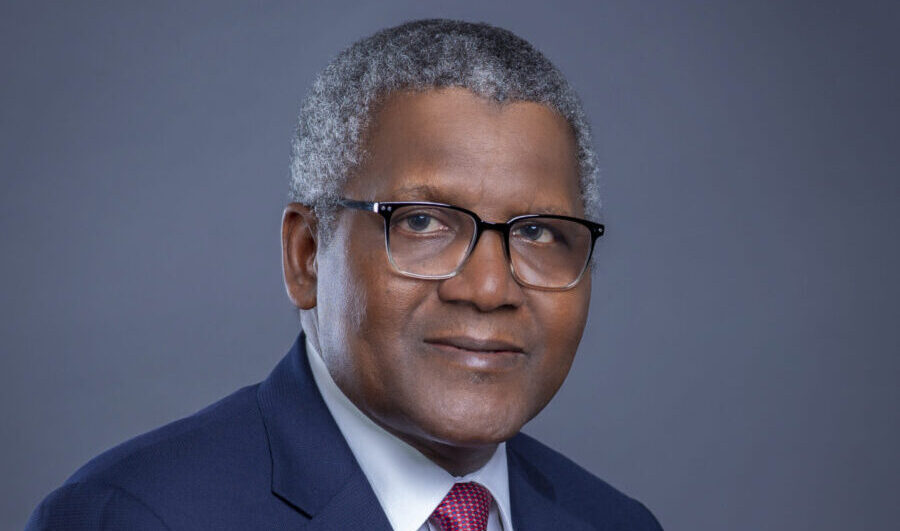Africa’s richest man and President of the Dangote Group, Alhaji Aliko Dangote, has disclosed that despite the commencement of operations at his $20 billion refinery located in the Lekki Free Zone, Lagos, efforts to undermine the facility remain relentless. He said he is still in a fierce battle to protect the refinery from entrenched interests who feel threatened by its capacity to disrupt their longstanding grip on Nigeria’s fuel import system.
Speaking at an investor forum in Lagos on Friday, Dangote reiterated his readiness to confront and overcome the resistance mounted by those benefiting from decades of petroleum product importation. According to him, powerful groups, enriched for years through government-subsidised fuel imports, are currently fueling a campaign to frustrate the refinery’s operations, especially following the removal of petrol subsidy by the administration of President Bola Tinubu.
Dangote noted that these vested interests, some of whom he described as oil cabals, are unhappy with the shift in Nigeria’s energy landscape, especially with the commissioning of the 650,000 barrels-per-day refinery. He maintained that their resistance has taken the form of crude supply sabotage and attempts to discourage patronage of locally refined products.
“We’re still fighting, and the battle is far from over,” Dangote declared. “But I’ve fought my way through challenges all my life, and I am 100 per cent confident we’ll prevail. What we’re up against is a cartel that has benefited from a broken system for over 35 years. Of course, they won’t clap for us. They’re doing everything to fight back.”
The business mogul lamented the persistent efforts to deny his refinery access to sufficient domestic crude oil, forcing it to import crude from as far away as the United States at greater financial cost. This, he said, is a deliberate ploy to increase operational expenses and stifle the competitiveness of the refinery.
His position was echoed by Devakumar Edwin, Vice President, Oil and Gas at Dangote Industries Limited, who earlier accused International Oil Companies (IOCs) operating in Nigeria of frustrating the refinery’s growth. Edwin alleged that the IOCs were intentionally inflating local crude prices, making it uneconomical for the refinery to source within Nigeria.
He also pointed fingers at the Nigerian Midstream and Downstream Petroleum Regulatory Authority (NMDPRA) for what he described as the indiscriminate issuance of licences to import substandard petroleum products, thereby undermining the refinery’s market advantage and compromising product quality standards in the country.
Edwin argued that the IOCs’ ultimate goal is to keep Nigeria locked into a cycle of exporting raw crude while depending on expensive refined products from abroad — a model that boosts foreign economies at the expense of domestic industrialization and job creation.
Despite these setbacks, Dangote remained resolute. He recounted how a former Saudi energy minister once tried to dissuade him from embarking on the refinery project, advice he firmly rejected. Today, he said, the necessity of the refinery for Nigeria and the wider sub-Saharan African region is clearer than ever.
He further recalled that in 2023, he had voiced regret over the extent of resistance from oil sector mafias, comparing their influence to that of global narcotics cartels. He stressed, however, that the project would not be derailed and that the refinery remains on course to reach full operational capacity.
Since beginning petrol production in September 2024, the Dangote Refinery has already started shifting market dynamics. The facility’s entry into the domestic energy sector has helped push down pump prices and increased competition, though it has also triggered concern among certain fuel importers and marketers, some of whom are counting significant losses.
Despite the challenges, the Independent Petroleum Marketers Association of Nigeria (IPMAN) has thrown its weight behind Dangote. The association’s Publicity Secretary, Chinedu Ukadike, described the refinery as a blessing to Nigerian consumers and praised Dangote for his commitment to resisting the so-called cabal that has dominated the sector for decades.
Ukadike acknowledged the pressure the refinery’s pricing strategy places on some independent marketers but insisted that healthy competition was good for the market and, ultimately, for the Nigerian people. “This is business, and every businessman wants to survive. Dangote is doing what’s right, and we support him all the way,” he stated.
However, the Petroleum Products Retail Outlet Owners Association of Nigeria (PETROAN), through its National President Billy Gillis-Harry, urged all players to allow fair competition within the downstream sector. He emphasized the need for Dangote to operate under a balanced system where both local refining and fuel importation coexist, arguing that such a framework is vital for market stability.
As Nigeria moves toward self-sufficiency in fuel refining and explores alternative means of strengthening its oil supply chain through initiatives such as the naira-for-crude deal, the Dangote Refinery remains a central piece in the nation’s energy transformation agenda. The struggle, however, highlights the deep-seated interests embedded in the sector and the resistance that often greets reforms that threaten the status quo.
